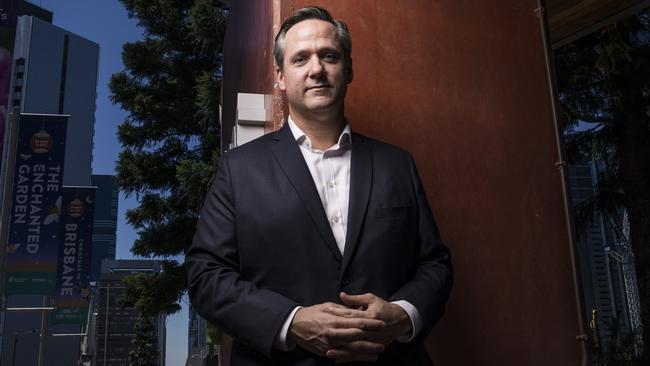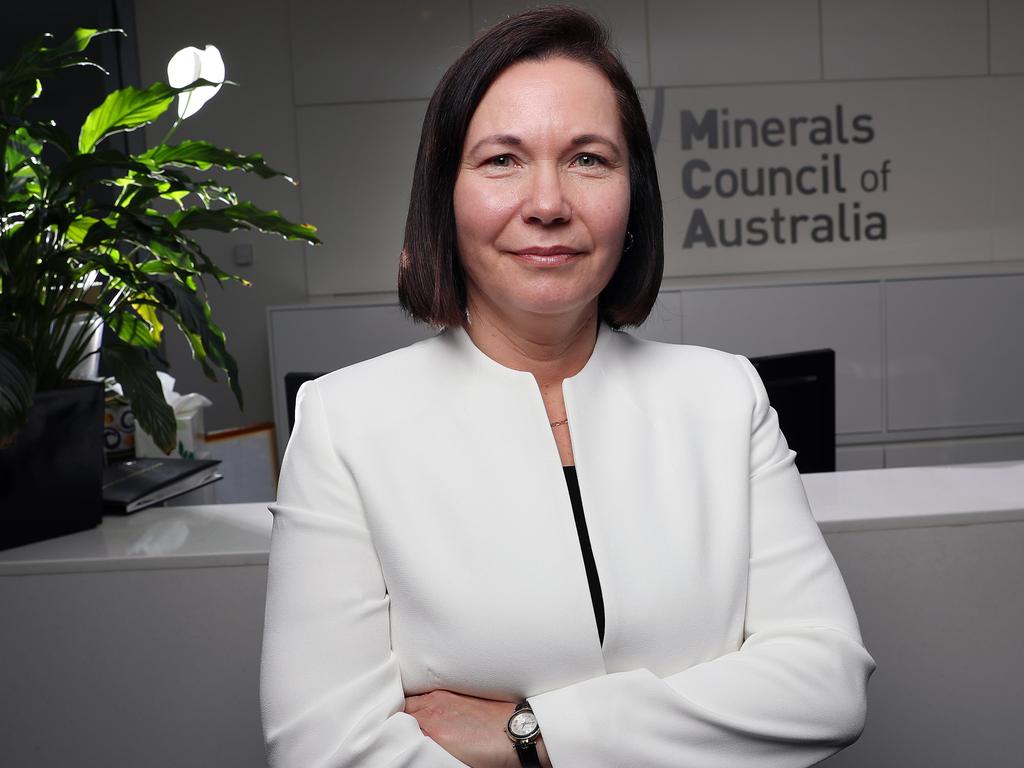Gas attacks ‘risk power price hikes’: Australian Petroleum Production and Exploration Association chairman Ian Davies
Gas, oil sector leader warns political attacks on energy sector risk killing investment and undermining national security.

Political attacks on the energy sector risk killing investment, driving prices higher and undermining national security and the economies of Asian neighbours, a gas and oil industry leader has warned.
With the Albanese government poised to intervene in the gas market over skyrocketing prices, Australian Petroleum Production and Exploration Association chairman Ian Davies warned that market intervention risked destroying energy security as a foundation of Australia’s national security for the past 50 years.
“Our resources have underpinned the economies and rising living standards of our neighbours, friends and allies in Asia for over half a century,” Mr Davies said on Thursday in a strong defence of an industry he described as unfairly “demonised”.
“In turn we have benefited from their investment in the capital-intensive development of our resources and access to the enormous scale of their markets – generating jobs, business opportunities, regional development, export income and government revenue for Australians.
“Very importantly, the economic and social security that has come with access to reliable, affordable energy for our Asian neighbours is the foundation of our own national security and a long period of stability in our region. However, this is not a future we can take for granted.”
The Albanese government has promised to outline before Christmas a plan to address the electricity and gas price spikes expected next year.
Cabinet is expected to consider a range of potential intervention options in the gas market, including: the imposition of temporary price caps; enforcing the code of conduct that governs gas sale negotiations; and a tax on gas and thermal coal that could be redistributed to energy users to provide price relief.
Responding to a campaign by resources companies against a possible new tax on coal and gas, revealed by The Australian last week, Deputy Prime Minister Richard Marles said the government’s focus was on getting prices down. “We are very focused on making sure that the prices associated with energy for households in Australia, for businesses in Australia, are brought down,” Mr Marles said.
“We are really focused on that as an issue. Increased energy prices are a huge pressure on Australian families and Australian businesses and we are looking at ways in which we can do that.”
Mr Marles said the government was speaking with gas companies and retailers to examine options to reduce the burden of energy costs on household and businesses budgets.
“We’ve spoken with the sector today, and our Treasurer and responsible ministers are speaking with the sector to look at ways in which we can walk down this path,” he said.
Mr Davies, in his final speech to the APPEA board in Perth, acknowledged the “stubbornly high” energy prices but said market intervention risked destroying the sector.
“As a result, governments continue to experiment with ways to bring prices down, ignoring the only sustainable, long-term solution to east-coast energy issues – which is more investment in more supply,” he said.
“There is no example anywhere in the world where market interventions such as price caps have worked.
“On the contrary, there are many examples where they have had the opposite of their intended effect: killing supply investment, creating supply shortages, reducing competition and ultimately destroying the very industries that they were meant to save.”
He said uncertainty over project approvals was creating doubt about the safety of investing in Australia. Demonising the gas industry along with government and regulatory decisions did not support the billions of dollars in investment needed for the transformation to a clean-energy future would push up energy prices and put the country at risk of a food crisis.
“Our food supply chain depends on fertilisers made from natural gas,” Mr Davies said.
It would also threaten the reliability of the energy system while jeopardising “the very emissions-reduction targets we are working to achieve”.
“Australia should be at the top of the queue to develop new supply, having signed up to the Paris Agreement, with among the highest environmental standards in the world, a commitment to free trade and open, competitive markets – and with more than 200 years of resources at current production levels,” Mr Davies said. “But this is not the view of some in our society who are not only calling for bans on new oil and gas development, but are mounting sophisticated, well-funded legal challenges and campaigns against our industry.”
Mr Davies said the sector supported the transformation of the energy system into a renewable energy superpower. “But those who oppose us want you to believe that stopping gas projects will speed up the energy transition,” he said. “It is not true. Australia simply cannot achieve that without natural gas … To reach net zero, we need all forms of energy to work together.”
He cited Britain’s decision last month to overturn a ban on gas exploration and the issuing of more than 100 new licences.
Mr Marles said there was a sense across the country that action was needed to put downward pressure on energy prices “given the impact that’s having on Australian households, on Australian businesses."








To join the conversation, please log in. Don't have an account? Register
Join the conversation, you are commenting as Logout